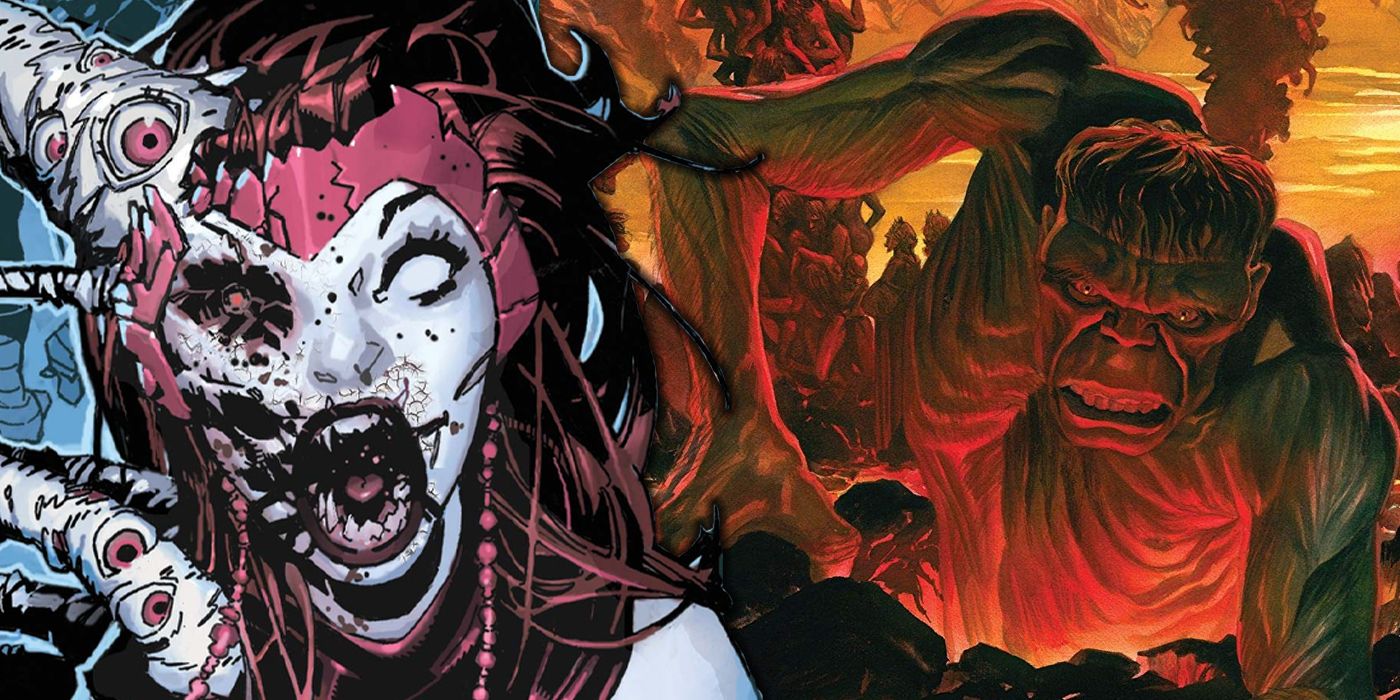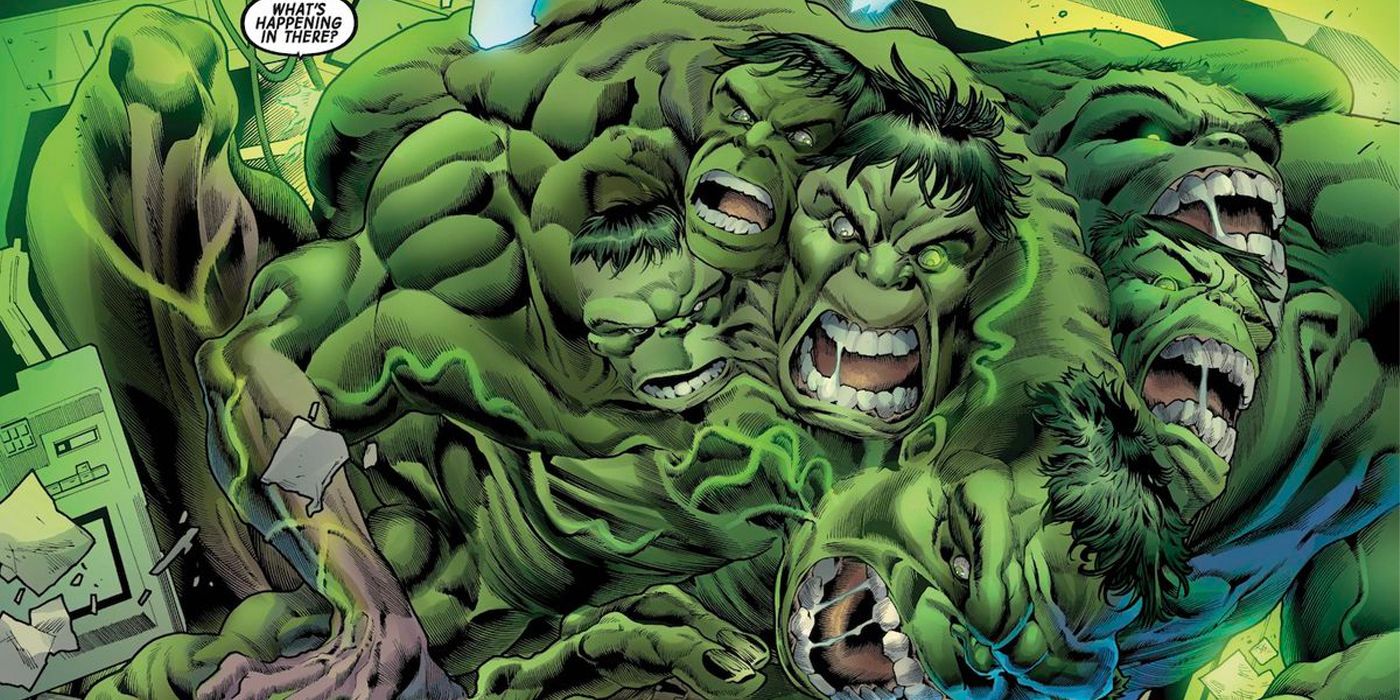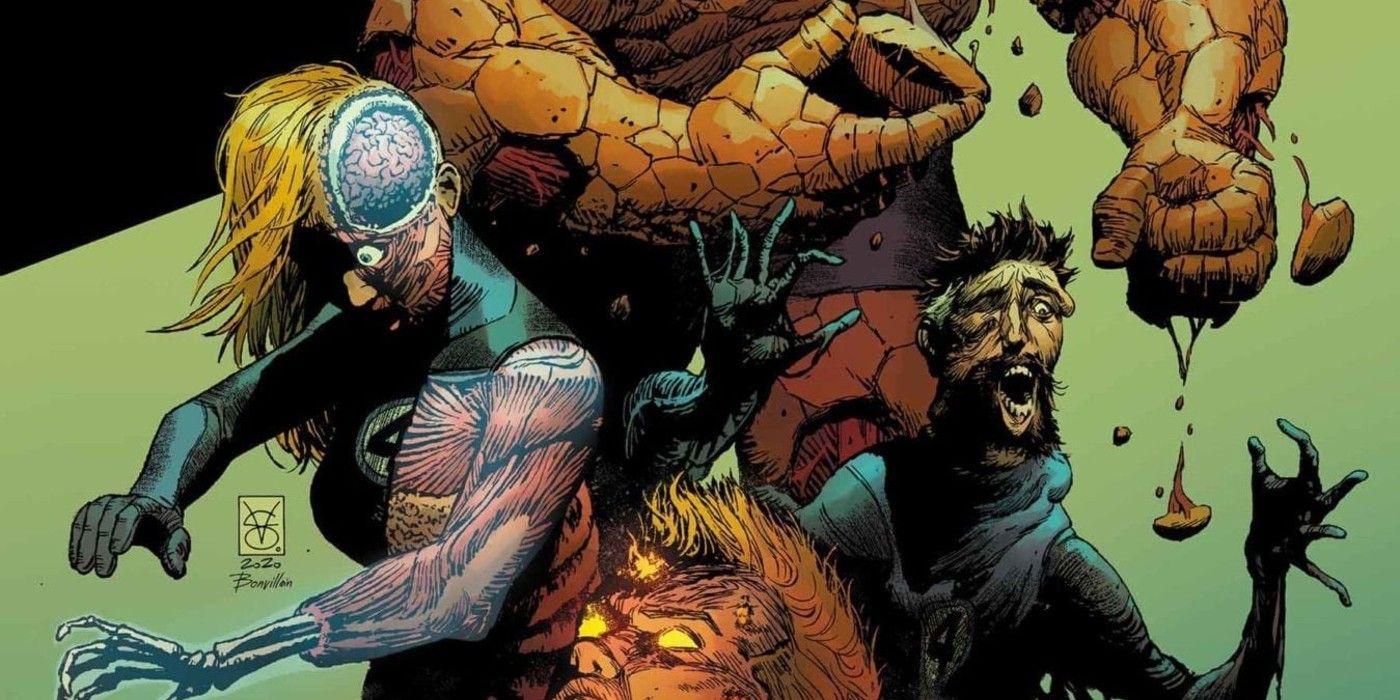If you were to take a look at the covers for some of Marvel's most popular comics over the past few years, a strange trend emerges. Teeming with slithering tentacles and bulging with Cronenberg-like mounds of flesh, some of them are among the grossest comics on shelves. If you dare gaze at what lies beneath, you’ll find they deliver on the covers' promise. But why is Marvel making so many body-horror comics?
The lack of control comics' heroes experience over their bodies is reminiscent of the way most of them acquired their powers -- through freak accidents that permanently changed their bodies. A prime example is, of course, Bruce Banner, who gained his powers after he became irradiated by gamma rays due to being at the wrong place at the wrong time. The Hulk has always had an aspect of body horror tied to his origin, because he habitually loses control and goes on rampages he later can't remember. That's taken to its logical extremes in The Immortal Hulk, by Al Ewing and Joe Bennett. There, Hulk habitually rips off his skin and grows multiple heads within a few minutes, because he can control neither his mind nor his body. The series explores that through horrific, uncontrollable changes to Banner’s form.
Related: Marvel's What If Proved Why One Hulk Is Too Powerful to Exist
The Immortal Hulk’s body horror goes hand in hand with its psychological horror, frequently exploring Banner’s lack of control over his mind. The gamma radiation that transformed him into a green monster did not give birth to the Immortal Hulk personality. Instead, Banner created him to protect himself from the abuse he endured as a child at the hands of his father. Ultimately, Immortal Hulk is merely a devilish side to Banner’s personality, except that the gamma radiation gave him an escape from the mental prison in which he had been locked.
Similarly, both Fantastic Four: Road Trip, by Christopher Cantwell, Filipe Andrade, Chris O'halloran and VC's Joe Caramagna, and the “Darkhold” event explore how heroes' bodies betray them in ways intrinsic to their personalities. The body horror in the two series trade in the psychological fears of their characters then give them physical form. The Fantastic Four, typically always thought of as a single entity, fuse together into a melted mess of walking flesh. A Darkhold-affected Tony Stark falls into his deepest fears and becomes a techno-organic humanoid shell reminiscent to Tetsuo the Iron Man.
The rise in body horror has affected a lot more than comics, however. It’s a trend that has cast a long shadow over every medium. In the manga sphere, Chainsaw Man and Jujutsu Kaisen focus on worlds where body horror is the norm and characters routinely lose control of their bodies. Every other page is filled with slithering masses of blood and flesh that create a dark atmosphere. Meanwhile, on television, American Horror Story has built a 10-season saga that bases every arc’s plot on the gore it can implant on its characters.
Related: Marvel Revealed Which Superpower May Have the Worst Downside - and Why
Ultimately, the recent increase in body horror can be attributed to multiple events in the real world, primarily the increasing reality of global climate collapse and the COVID-19 pandemic. Psychologically, seeing our physical world change has made a lot of people reflect on what they thought they knew about the world. Immortal Hulk and his compatriots even declare war on humanity because of how much harm they’ve caused the planet. COVID-19 has caused people to have a lot of firsthand experience with how a person’s body can turn into the enemy, seemingly overnight.
Essentially, Marvel uses body horror to explore the more tragic aspects of gaining superpowers. An innate part of becoming a superhero is losing full control of your own body as it undergoes jarring changes. For Rogue, awakening her powers meant she had to stop interacting with the physical world because a simple touch could kill. For Franklin Richards, a single thought could undue the fabric of reality. Marvel’s body horror breaks its characters bodies to show how superpowers make a person feel like the body they’ve known their entire life is now alien. Marvel's body horror makes a clear argument, to gain superpowers is to have your bodily autonomy violated.
KEEP READING: Marvel Revived One of Its Weirdest Forgotten Heroes - Here's What You Need to Know



